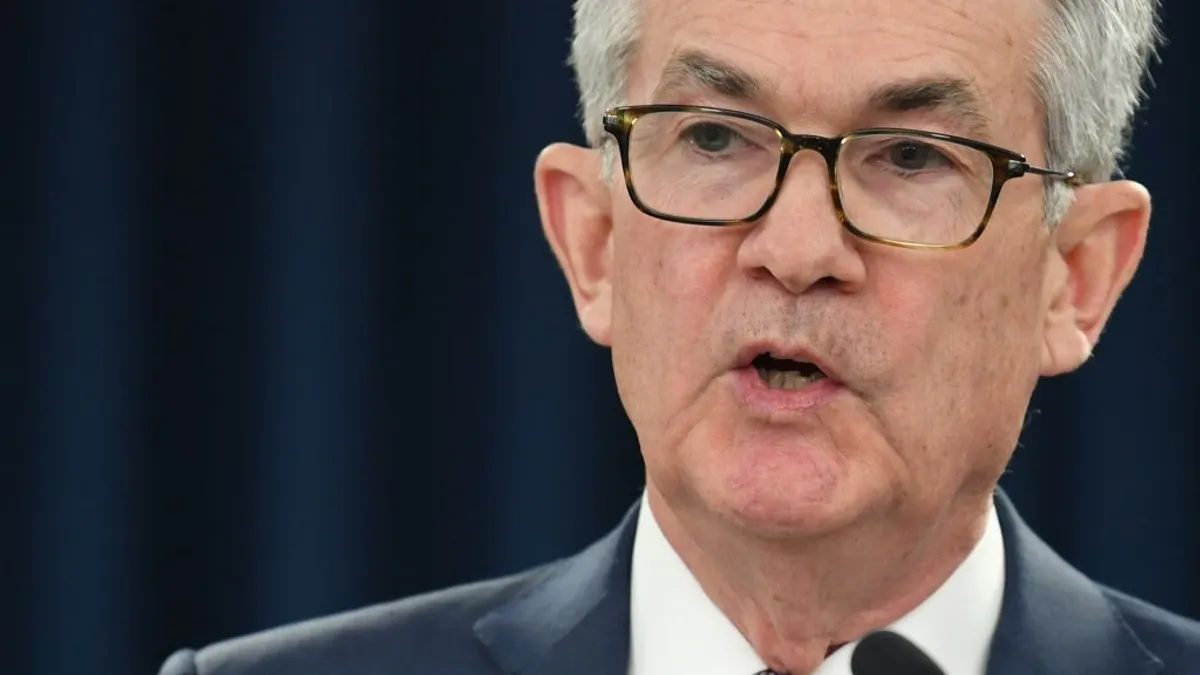Dive Brief:
- Federal Reserve Chair Jerome Powell faced criticism Thursday from Democrats on a Senate panel urging the central bank to trim the main interest rate from a 23-year high to increase housing affordability and help businesses that need lower-cost loans.
- “High interest rates are raising housing costs, hindering wage growth, stifling small businesses — we all know that,” Senate Banking Committee Chair Sherrod Brown of Ohio said at the start of Powell’s semi-annual testimony. “Keeping rates too high for too long strangles the economy,” he said.
- The high cost of borrowing “makes it harder for small businesses to expand and hire more workers, undermining job creation,” Brown said. “Higher rates also stifle overdue investments that are creating high quality good paying jobs and that are necessary for us to remain the most competitive and innovative economy in the world.”
Dive Insight:
Republicans on the panel rallied behind Powell and his determination to forgo a trim to the federal funds rate from a range between 5.25% and 5.5% until policymakers see signs that inflation is steadily falling toward their 2% target.
“I commend you for the job you have done in trying to rein in inflation and encourage you to continue to fight despite political pressures you may face,” Sen. Steven Daines, R-Mont., told Powell after blaming the highest inflation in 40 years on Democrat-backed government spending.
Powell in his testimony underscored the costs from high inflation.
The Fed “remains highly attentive to inflation risks and is acutely aware that high inflation imposes significant hardship, especially on those least able to meet the higher costs of essentials, like food, housing and transportation,” he said. “Restoring price stability is essential to achieve a sustained period of strong labor market conditions that benefit all.”
At the same time, Powell said that he expects the Fed will be able to begin trimming borrowing costs sometime this year if coming data show that price pressures are on a steady downward trajectory.
“If the economy evolves broadly as expected, it will likely be appropriate to begin dialing back policy restraint at some point this year,” he said. “But the economic outlook is uncertain, and ongoing progress toward our 2% inflation objective is not assured.”
Democrats underscored how high interest rates have put home purchases out of reach for many Americans.
“As you have well pointed out, overall prices have moderated considerably since the Fed began raising rates and yet housing costs have remained stubbornly resilient — they are high, leaving us really no closer to addressing the affordability crisis” that preceded the pandemic, according to Sen. Tina Smith, D-Minn.
High borrowing costs have pushed up the cost of construction and mortgage payments, Smith said. “So there's sort of this double whammy of construction slowing at the same time that there is this great need to address housing supply.”
Powell acknowledged that high rates have slowed housing demand and construction, while noting that builders face constraints from a tight labor market and strict zoning rules.
“The housing market is in a very challenging situation right now,” Powell said. “Supply is a longer run problem.”













